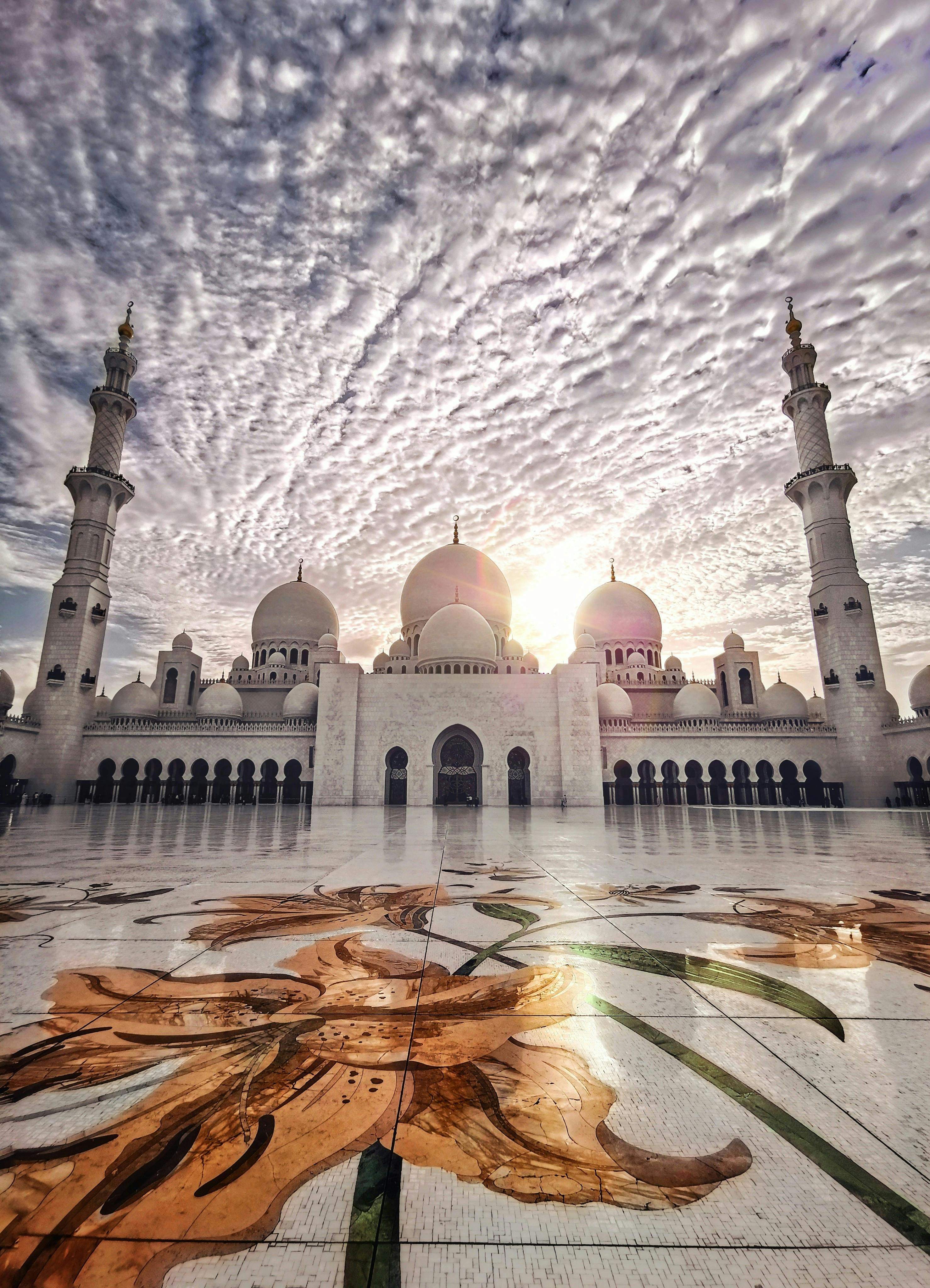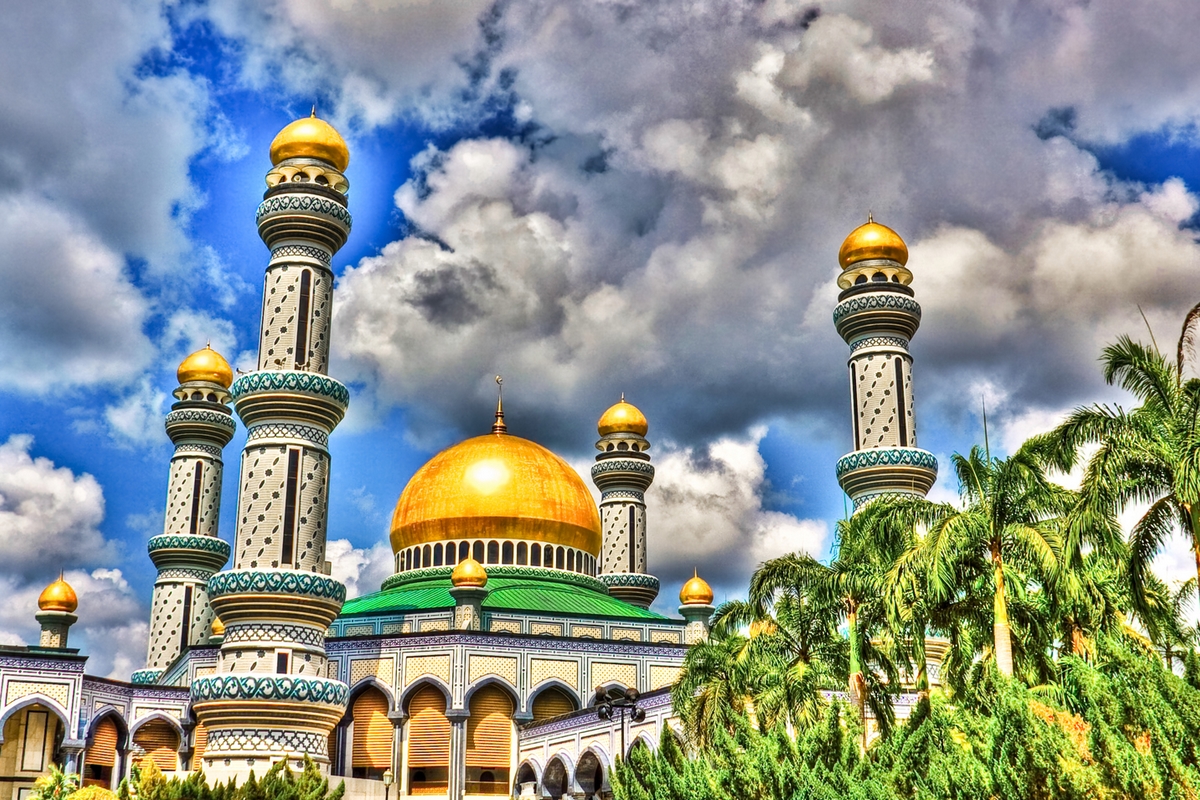Unveiling The Powerhouse: Islamic Republic Of Iran Broadcasting's Global Reach
The Islamic Republic of Iran Broadcasting (IRIB) stands as a colossal entity within Iran's media landscape, a state-controlled apparatus that shapes public discourse and projects the nation's narrative both domestically and across international borders. Far more than just a collection of television and radio channels, IRIB represents a singular, powerful voice, deeply intertwined with the political and cultural fabric of the Islamic Republic.
This comprehensive article delves into the intricate operations of IRIB, exploring its historical roots, vast structure, diverse activities, and the significant challenges and controversies it navigates in an increasingly interconnected world. Understanding IRIB is crucial to grasping the dynamics of media, politics, and society in contemporary Iran.
Table of Contents
- A Legacy Forged: History and Establishment of IRIB
- The Command Center: Structure and Control of IRIB
- Voice and Vision: Domestic and International Operations
- Shaping Narratives: Content and Programming
- Navigating Stormy Waters: Challenges and Controversies
- The Enduring Relevance of IRIB Today
- Conclusion: IRIB's Enduring Influence
A Legacy Forged: History and Establishment of IRIB
The genesis of the Islamic Republic of Iran Broadcasting is inextricably linked to one of the most pivotal moments in modern Iranian history: the 1979 Islamic Revolution. Prior to this transformative event, the national broadcaster was known as National Iranian Radio and Television. However, with the establishment of the Islamic Republic, the media landscape underwent a fundamental and swift transformation. IRIB emerged as the sole entity authorized to operate radio and television services, effectively centralizing media control under the new revolutionary government. This foundational act underscored the profound importance placed on media as a tool for ideological dissemination, cultural preservation, and national unity in the post-revolutionary era.
From its inception, IRIB was tasked not merely with providing entertainment, but with a broader, more profound mission: to promote national culture, provide quality content aligned with Islamic values, and connect with audiences both within Iran and across the globe. This comprehensive mandate set the stage for its evolution into the sprawling media conglomerate it is today, a powerful instrument for shaping public opinion and projecting Iran's official narrative to millions, both at home and abroad. Its establishment marked a new chapter in Iran's media history, one where state control and ideological alignment became paramount.
The Command Center: Structure and Control of IRIB
Understanding who controls IRIB is fundamental to comprehending its operations and pervasive influence. Unlike public broadcasters in many democratic nations, the Islamic Republic of Iran Broadcasting is far from an independent entity. Its governance structure is deeply embedded within the political and religious hierarchy of the Islamic Republic, ensuring its unwavering alignment with state objectives and the guiding principles of the revolution.
Supreme Leader's Oversight and Appointment
At the absolute apex of IRIB's command structure is the Supreme Leader of the Islamic Revolution, currently Imam Khamenei. The Supreme Leader holds ultimate and unquestionable authority over the organization, directly appointing the Chairman of IRIB for a five-year term. This direct appointment mechanism is not merely a formality; it ensures that the leadership of Iran's most influential media organization is handpicked by the highest spiritual and political authority in the country. This guarantees not only ideological consistency but also unwavering loyalty to the state's vision and policies. This direct line of command unequivocally underscores the strategic importance of IRIB as a vital state apparatus, functioning as an extension of the government's will, rather than a mere media company driven by commercial or independent journalistic imperatives.
Organizational Breadth and Media Outlets
IRIB is far more than just a single broadcaster; it is, in fact, the largest media company in Iran, boasting dozens of media outlets across a diverse array of platforms. This extensive portfolio includes a vast network of broadcasting channels, encompassing both television and radio, a significant and rapidly expanding online presence, and even forays into traditional print media. Its domestic services are widely known by their Persian name, "Seda va Sima" (Voice and Vision) of the Islamic Republic of Iran, a name that perfectly encapsulates its dual role in both audio and visual communication. This immense and multifaceted reach allows IRIB to penetrate nearly every household in Iran, making it an indispensable and often primary source of information and entertainment for millions of citizens across the nation. The sheer scale of its operations highlights its unparalleled capacity to disseminate information and shape public discourse.
Voice and Vision: Domestic and International Operations
The operational scope of the Islamic Republic of Iran Broadcasting is truly immense, spanning both a comprehensive domestic network and an ambitious, far-reaching international presence. With its headquarters prominently located in the sprawling Jame Jam Park in Tehran, including its iconic northeast gate along Valiasr Street, IRIB manages a complex web of services meticulously designed to reach diverse audiences, both within Iran's borders and across the globe.
Domestic Services and Nationwide Reach
Domestically, IRIB holds a unique position as the sole Iranian broadcaster, offering a multitude of television, radio, and online services that cater to a wide spectrum of the population. It operates an impressive twelve domestic television channels, each dedicated to a wide range of genres and interests, from breaking news and in-depth current affairs to rich cultural programming, popular entertainment, and live sports broadcasts. The Islamic Republic of Iran News Network (IRINN), for instance, is a key and highly visible component of IRIB, headquartered in Tehran and primarily focusing on political news, though it also provides comprehensive coverage of sports, science, and medical news. This comprehensive domestic coverage ensures that IRIB remains a pervasive and inescapable presence in the daily lives of Iranians, delivering content in various regional languages and connecting with audiences across the vast and diverse country, from bustling urban centers to remote rural areas.
Global Footprint and the IRIB World Service
Beyond its national borders, IRIB extends its influence through a significant and strategically important international footprint. With approximately 13,000 employees and branches established in 20 countries worldwide, including strategic locations such as Italy, France, Belgium, Guyana, Malaysia, Lebanon, the United Kingdom, and even the United States, IRIB offers both domestic and foreign radio and television services. It broadcasts an impressive four international news channels, each meticulously crafted to provide an Iranian perspective on global events, often serving as a counter-narrative to Western media outlets.
A particularly notable and historically significant component of this international outreach is the IRIB World Service, which is also widely known as the Voice of Islamic Republic of Iran. This official international broadcasting radio network, which actually began operations in 1956 (prior to the revolution but later integrated and repurposed under the new regime), has the explicit and long-standing aim of familiarizing different world nations with Iran's rich history, its vibrant culture, its diverse regions, and its numerous historical sites. This form of cultural diplomacy through media serves a crucial purpose: to counter potentially negative or one-sided portrayals of Iran and to foster a deeper, more nuanced understanding of the nation on the global stage, projecting its soft power and cultural heritage.
Shaping Narratives: Content and Programming
The content produced and disseminated by the Islamic Republic of Iran Broadcasting is not merely a collection of programs; it is meticulously curated to align with its overarching mission as a state broadcaster. While IRIB provides a broad spectrum of programming, ranging from light entertainment and educational content to religious sermons and historical documentaries, its core focus remains steadfast: promoting national culture, providing quality content that resonates with Iranian values, and, crucially, shaping public discourse in strict alignment with state ideology and religious principles.
News coverage stands as a cornerstone of IRIB's extensive offerings. As exemplified by the Islamic Republic of Iran News Network (IRINN), the main programs are predominantly political, reflecting the state's paramount emphasis on political developments and its official stance on both domestic and international affairs. However, IRIB also provides comprehensive coverage of cultural, social, economic, and sports news, offering a seemingly broad, yet undeniably filtered, view of current events. For instance, following significant national events, such as the tragic assassination of a nuclear defense scientist, IRIB would serve as the primary and authoritative conduit for official messages, including the full text of Imam Khamenei's message, ensuring a unified national response and a consistent, state-approved narrative. The programming is designed to connect with the audience by delivering information and entertainment that reinforces national identity, Islamic values, and loyalty to the system. While the breadth of content is wide, the underlying editorial line consistently reflects the perspectives and policies of the Islamic Republic, making it a powerful tool for ideological guidance and public persuasion.
Navigating Stormy Waters: Challenges and Controversies
Despite its vast reach, immense resources, and unwavering state backing, the Islamic Republic of Iran Broadcasting is far from immune to significant challenges and controversies. These issues frequently stem from its direct and undeniable affiliation with the state, and its operational role within a complex and often adversarial geopolitical environment, profoundly impacting its credibility, operational freedom, and international standing.
International Sanctions and Human Rights Concerns
One of the most prominent and persistent challenges confronting IRIB is the imposition of stringent international sanctions. IRIB and its various subsidiaries have been formally designated, notably in 2013, by various influential international bodies, including the United States and the European Union, for alleged grave human rights violations. These sanctions frequently cite IRIB's controversial role in broadcasting forced confessions, disseminating state-sponsored propaganda, and spreading misinformation, particularly concerning political dissidents, protestors, and perceived enemies of the state. Such designations severely impact IRIB's ability to operate freely on the international stage, affecting its access to crucial equipment, advanced technology, and potential international partnerships. Moreover, these sanctions cast a long and pervasive shadow over its legitimacy and credibility as a media organization in the eyes of the global community.
Geopolitical Incidents and Attacks on Infrastructure
IRIB's direct and prominent state affiliation also makes it a potential and often actual target in broader geopolitical conflicts and regional tensions. A notable and alarming incident occurred on June 16, when the Islamic Republic of Iran Broadcasting building was struck in an alleged Israeli attack. This direct strike immediately cut live coverage, causing studio lights to flicker and go out, and abruptly interrupting ongoing broadcasts. Iranian officials swiftly and vehemently condemned the bombings of its state TV station as a "war crime," asserting a clear violation of international law. Iran's state news agency, IRNA, promptly confirmed the attack, stating that programming was "briefly halted" but "returned to normal" shortly thereafter. Such direct attacks on critical media infrastructure highlight the volatile and high-stakes environment in which IRIB operates, and the inherent risks associated with its unequivocal role as a state mouthpiece and a symbol of national power.
Public Perception and Shifting Relevance
Internally, within Iran itself, IRIB faces a significant and growing challenge to its relevance and credibility among the Iranian populace. While traditional television broadcasting remains generally more popular than radio and newspapers in Iran, recent surveys and anecdotal evidence indicate a discernible and increasing trend of the public actively "ditching" the state broadcaster. This significant shift in audience behavior suggests a declining level of trust in IRIB as a reliable and unbiased source of information, possibly due to its perceived heavy bias,
- Noarmsgirl Only Fans
- Jonathan Oddi
- King Nasir Real Name
- Paris Jackson Mother Debbie Rowe
- Is Piero Barone Married

Mosque Photos, Download The BEST Free Mosque Stock Photos & HD Images

HD Islamic Wallpapers - Wallpaper Cave

Islamic History And Islamic Wallpaper: New Islamic Wallpaper